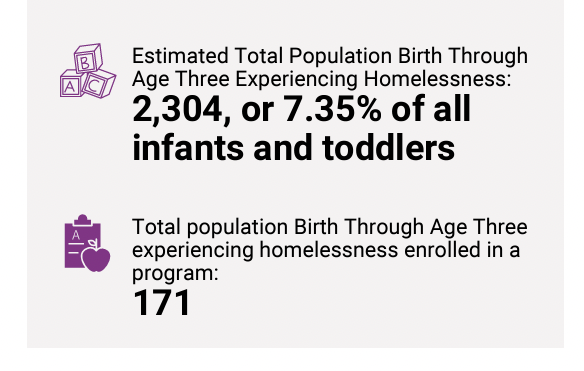Inspired by the children he taught at Southwest D.C.’s Amidon-Bowen Elementary School (ABES), songs ran through the mind of special education teacher Bernard Jankowski as he walked the school’s halls.
But Jankowski’s mental concerts, reflecting the joyfulness of kids playing and learning, were often drowned out by discordant, flat notes, he remembers in his recently-published memoir.
Too many of his students entered ABES not just with backpacks, but with lots of emotional baggage, Jankowski writes. And, in Jankowski’s view, the school wasn’t able to support them.
That dissonance makes Jankowski’s memoir of teaching at ABES, “Music In the Halls: the Heart and Heartbreak of Teaching at a High-Poverty School In Washington, DC” a memorable, jarring reading.
It’s D.C.’s latter-day, more muted version of Jonathan Kozol’s 1967 book “Death At An Early Age,” which recounts the author’s experience teaching in a Boston public school serving Black students. The depictions of overt racism and corporal punishment by teachers seared the conscience of Americans at that time.
Even though the most abhorrent practices that Kozol’s book recounts are thankfully not tolerated today in Boston or D.C., “Music in the Halls” should send a flashing yellow caution light to people, like this writer, who initially welcomed the changes mandated by No Child Left Behind’s testing regime and the tough, results-oriented policies advanced by then-D.C. Public Schools (DCPS) Chancellor Michelle Rhee. The book recounts how DCPS’s data-driven policies set unrealistically high expectations while ignoring the traumas affecting many students.
Jankowski, a former publishing executive and published poet, grew up in Virginia and Maryland, but his family hails from the tough working-class northeastern Pennsylvania anthracite coal region.
“There are a lot of socio-economic parallels with [largely white] Shamokin, Pennsylvania and [largely Black] Southwest and Southeast D.C. No one’s family is perfect,” Jankowski said.
In the book, Jankowski is candid about the difficulties his mother’s large family experienced, like substance abuse and legal trouble. He thinks this background helped him begin to understand the behaviors his special education students adapted to cope.
The book features short recollections of children, recounting their problems at home. One is DeAndre, whom Jankowski describes as a young person who liked trouble. DeAndre’s father was incarcerated. When “Mr. J” talked with DeAndre, urging him to change, DeAndre replied, “But how can you change?” Years after DeAndre left ABES, Jankowski heard stories about crimes DeAndre committed.
Jankowski entered ABES after Rhee departed DCPS, and many of the school’s teachers had just left due to IMPACT, an evaluation system designed to rid the school system of teachers who were allegedly underperforming. Teachers cycled through quickly and had little chance to gain experience. Because of DCPS’s turnstile system, few teachers Jankowski started with remained at ABES by the time he left.
Many ABES kids, especially those in special education classes that Jankowski taught, came not just from high-poverty backgrounds but also families beset by hunger, joblessness and parental behavioral issues such as abuse, alcohol and drug misuse, Jankowski writes. The IMPACT system failed to account for the significant challenges confronting teachers and their students, Jankowski noted. In 2018, a Washington Post article noted that despite the changes, low-income students were still less likely to have a successful teacher.
One DCPS bureaucrat, Jankowski writes, conceded after they arrived at ABES to right things, “Central Office has no idea what this is really like. They sit around all day, looking at data.”
In his book, Jankowski concedes that Rhee was attempting to solve a real issue regarding the low academic performance of children. He asserts his belief in “rigorous instruction” to ensure students are performing at grade level and he opposes the feel-good special education instruction once a standard part of the “old” DCPS. Some notably ineffective teachers deserved termination, he writes.
But Jankowski stresses there is a role for compassion given the problems his students in special education were experiencing.
Jankowski faults the No Child Left Behind and DCPS testing regimes in use at the time for pinning labels on student performance like “below basic,” making it easy to write off the true potential of students.
“These kids were ones with difficulties but in the end they are just kids who want to succeed and belong.” Jankowski countered in an interview. “We have a real responsibility to help these young children” to achieve their potential by providing better, earlier social services and educational intervention to students.
The school’s counselors and social work crew were understaffed and overburdened. At ABES, Jankowski observed many students were noticeably underperforming in reading due to undiagnosed learning disabilities. He worked with the school psychologist to ensure those children received the necessary special help.
“We were able to test students to include in Special Ed that helped them get the services they needed,” Jankowski wrote in an email. “Once you clarify what a student needs it helps everybody.”
DCPS insists teachers now receive stronger support, according to a recent fact sheet. But the problems persist. The recent spike in violent crimes committed by young people in D.C. and continued racial learning gaps demonstrate the continued need for the city to better address the true educational and emotional needs of kids from underserved neighborhoods rather than just see pupils as aggregate data.
“Music In the Halls” highlights hope at ABES too, such as grandparents trying to do right by their grandchildren. It can illuminate for many D.C. residents and aspiring educators the struggles too many children experience in our city. Now, based on his high school teaching, Jankowski is working on a new book examining the link between mental health and education.
Steve Lilienthal is a freelance writer in Washington, D.C.








